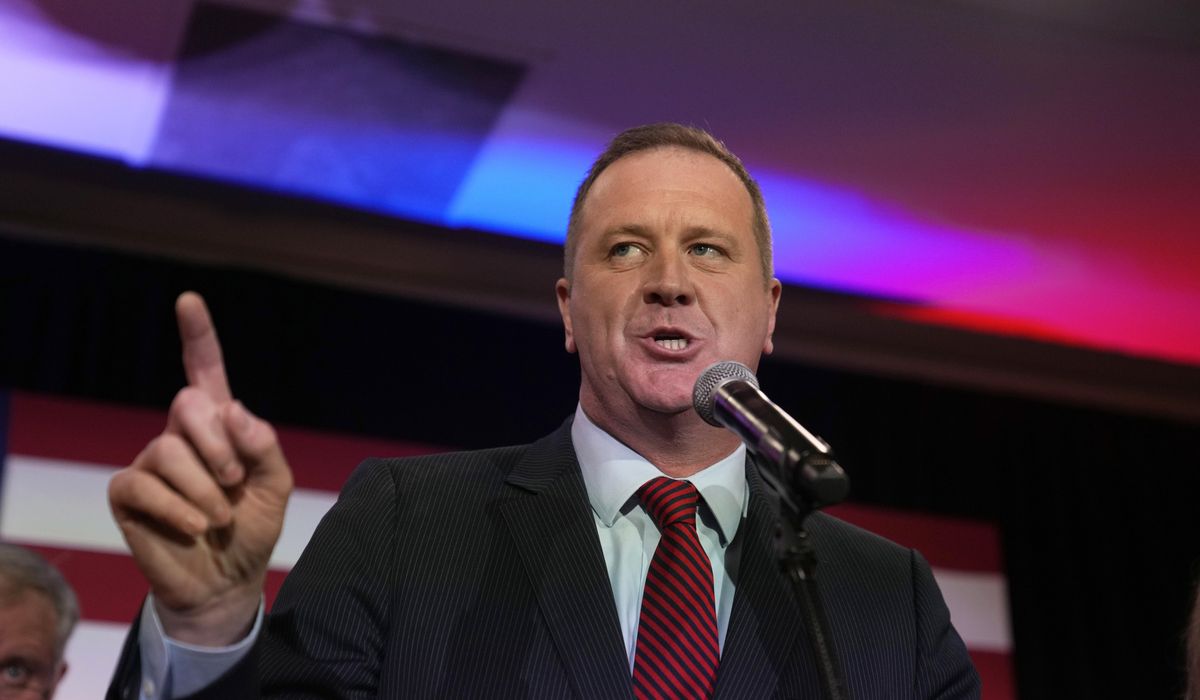Ex-Missouri AG hits Biden student loan plan ahead of Supreme Court arguments


The man who helped upend President Biden’s student loan forgiveness plan in the lower courts says he is confident the Supreme Court will provide the last nail in the coffin for the administration’s plans.
Sen. Eric Schmitt helped lead the legal fight against the Biden administration’s debt forgiveness agenda when he was the attorney general of Missouri.
Now, the Supreme Court will hear arguments this month over the matter, which could affect more than 20 million borrowers.
The Higher Education Loan Authority of the State of Missouri, known as MOHELA, services loan accounts in all 50 states, giving Mr. Schmitt a means to launch the legal battle on behalf of his constituents. The crux of his argument is that debt cancellation would negatively impact MOHELA by making it unable to meet all of its obligations.
“There is just no way on God’s green earth that the president of the United States or any one person has the ability to wipe away $500 billion to a trillion dollars of student loan debt when he is not authorized by any law to do that. It was a cynical political ploy during election season. There is no authority to do this,” Mr. Schmitt, Missouri Republican, told The Washington Times.
A spokesperson for the Justice Department did not immediately respond to a request for comment.
The Biden administration appealed the case to the Supreme Court after the U.S. Court of Appeals for the 8th Circuit issued an injunction halting the forgiveness from taking effect.
U.S. Solicitor General Elizabeth Prelogar has argued in a court filing that the secretary of education had found there would be a spike in delinquency from low-income earners following the COVID-19 pandemic.
“The plan falls squarely within the plain text of the Secretary’s statutory authority,” wrote Ms. Prelogar.
The administration had asked the high court to lift the injunction, but it refused, instead taking up the appeal.
In August, the president revealed plans to cancel up to $20,000 of student debt per borrower for those who earn less than $125,000 a year — or $250,000 for married couples.
Mr. Biden cited as support for his move the HEROES Act, which was passed after the Sept. 11, 2001, terrorist attacks that gave the executive branch authority to forgive certain debts regarding the military during emergencies.
The Biden administration says the COVID-19 pandemic is considered an emergency under the law, and has applied it to student loan borrowers.
Challengers have argued that the president does not have the authority to unilaterally forgive loans taken out by millions of borrowers.
“The Administration is once again invoking the COVID-19 pandemic to assert power far beyond anything Congress could have conceived,” six Republican-led states argued in a court filing.
In their brief, the states say Mr. Biden is exceeding the authority of the HEROES Act and has no unilateral power to erase an estimated $400 billion of federal student debt.
Iowa, Nebraska, Kansas, South Carolina and Arkansas have joined Missouri in the legal fight.
But they aren’t the only challengers the high court will hear from on Feb. 28, when the Biden administration is set to defend its plan.
Two borrowers also have sued and won in lower court, prompting the administration to appeal. The borrowers argued that the government ran afoul of federal law in launching the debt forgiveness plan.
One of the borrowers, Myra Brown, does not qualify under the president’s requirements for debt forgiveness because it does not cover “commercially held federal student loans that are not in default,” according to her court filing. The other borrower, Alexander Taylor, qualifies for only a portion of the debt forgiveness.
A lawyer for Ms. Brown and Mr. Taylor did not immediately respond to a request for comment.
Mr. Schmitt said if the high court were to green-light the president’s debt forgiveness plan, it could create a flood of lawsuits from other borrowers.
“The larger issue is one of fairness. How is it fair to the people who chose not to take on debt or work to pay off that debt or did something else entirely to not have to pay for the unpaid bills for the tenured professor with a theater degree? The truck driver and the waitress shouldn’t have to do that. It’s really unfair to hardworking Americans across the country that they would be saddled with this debt,” he said.
The cases are Joseph R. Biden v Nebraska and U.S. Department of Education v Myra Brown. Both will be argued before the justices on Feb. 28.
A ruling in both cases is expected by the end of June.
[ad_2]
Share this news on your Fb,Twitter and Whatsapp
Times News Network:Latest News Headlines
Times News Network||Health||New York||USA News||Technology||World News